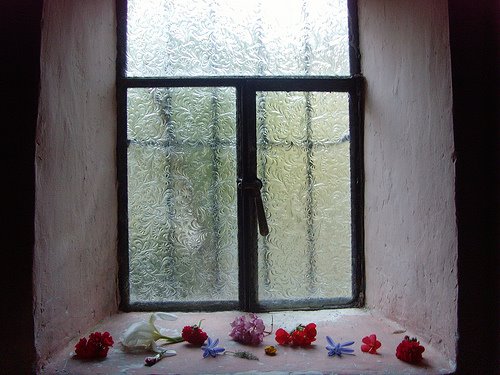All about the Wifey
Japanese wife Fujimori's biggest asset on the Peruvian campaign trail
04/17/2006
By hiroshi Ishida, The Asahi Shimbun
LIMA--No matter where she goes, the new Japanese bride of former Peruvian President Alberto Fujimori is big news here.
The media doesn't seem to be able to get enough of Satomi Kataoka, 40, who wed Fujimori earlier this month.
Whether she's at the airport, leaving her hotel or on one of her visits to the Peruvian capital's slums, the TV cameras are there in hordes.
In fact, her new and very public profile is even credited for boosting support for the pro-Fujimori Alliance for the Future party in Peru's April 9 congressional elections, held just days after the couple's marriage was officially registered in Tokyo.
"Satomi's contribution was great," said a senior alliance official.
Before she began to grab headlines, Peru's major media organizations gave little coverage to the alliance. Support rates had dwindled.
While a pro-Fujimori presidential candidate failed to gain enough votes for a runoff presidential election to be held later this year, the pro-Fujimori force won 15 of the 120 congressional seats.
Fujimori's daughter, Keiko, 30, was one of the successful candidates.
After visiting Fujimori, 67, earlier this month at the detention center in Chile where he is awaiting a decision on whether to extradite him to Peru, Kataoka went straight to Lima to help with the campaign--even despite warnings that she would be investigated because of her financial support of the former political heavyweight.
It was her second visit to Peru. Born in Gifu Prefecture, Kataoka studied in the United States after graduating from junior high school.
She is said to have developed wide connections in political and business circles while working at a high-class club in Los Angeles.
After returning to Japan, she says an acquaintance entrusted her with the operation of a Tokyo hotel. Kataoka is said to be hugely interested in politics and has written a book on the resurrection of the Bushido spirit. She was also involved in a campaign to oppose relocation of war-related Yasukuni Shrine in Tokyo.
She says she met Fujimori in 2001 while he was in self-imposed exile in Japan after Peruvian authorities issued an arrest order against him for corruption and other charges.
After learning Fujimori was having a hard time in Japan, Kataoka said she offered him use of a hotel room and supported him financially.
But, deciding to stage his election campaign from Chile, Fujimori left Japan in November. He was detained upon his arrival in the country at the request of the Peruvian government. His election bid was disqualified in January.
Of Fujimori she says, "He is a scholar by nature. It seems he was driven not by hunger for power but by the urge to resolve the challenging research tasks in Peru."
Visiting slums in Peru, she found residents had no tap water or electricity supply. Many asked her to "bring back Chino (Fujimori), the only one who helped us."
"I learned for the first time what the poverty he fought for 10 years was like," she says, adding, "What he did was not wrong." She says she plans to live with Fujimori in Japan if Chile decides not to hand him over to Peru.(IHT/Asahi: April 17,2006)
copyright 2006 The Asahi Shimbun Company. All rights reserved. No reproduction or republication without written permission.









